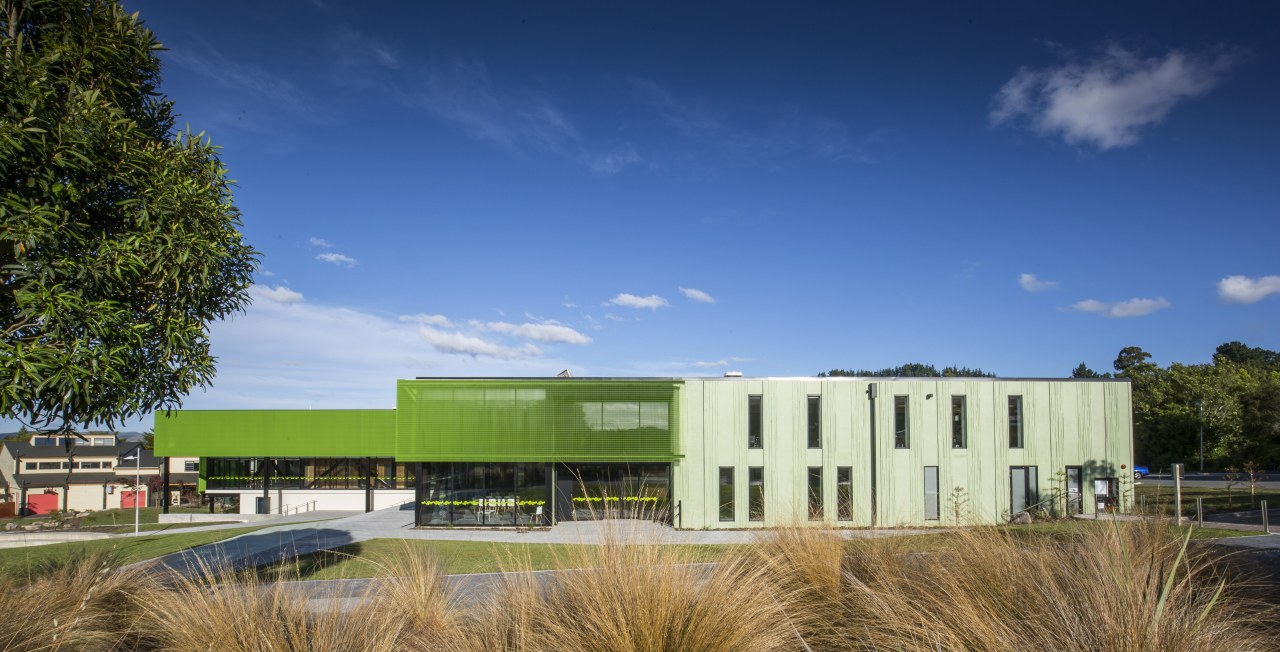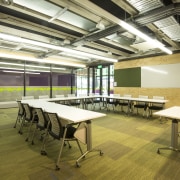New nurses teaching facility with glass-walled adaptable classrooms
Multi-purpose, transparent classrooms ensure the Health and Science Centre, Waiariki Institute of Technology, makes the best use of available space and empowers students

Seated in rows, facing the front, fidgeting when no-one's looking this is the tired, space-hungry model of classrooms past. The future of learning, however, looks lighter on its feet more adaptable, peer-focussed, and teaching-effective.
The Health and Science Centre is a striking new building on Rotorua's Waiariki Institute of Technology campus. The three-level facility that houses the Faculty of Health Education and Humanities is an is an early cornerstone of a planned pedestrian boulevard that will reorganise the campus.
However, the highly researched and highly contemporary building, designed by Darryl Church Architecture in association with MOAA Architects, is also forward-looking in more fundamental ways.
The trend seen here is to move away from a didactic and static classroom cell delivery to an interactive, student centric, self-tailored model of learning, says Church.

"Most teaching spaces in the centre are transparent, with operable glass walls that can pull back to turn two classrooms into one larger gathering space, for example. Their see-through nature means students can watch other students learning.
This is a positive model in two ways students are inclined to stay on task when they know others are looking on. And, in turn, the onlookers are energised by seeing their peers in full learning mode."
But the Health and Science Centre's versatility goes beyond reconfigurable classroom walls. Everything was considered with the future in mind.
"The institute initially wanted the lecture hall to be an auditorium with stepped seating, but we suggested a flat-floored venue would be more versatile potentially used for functions and other performances as well as for speakers," says Church.
"And there may be a time where the building is put to other uses. With this in mind, laboratories have their services linked in around the perimeters, rather than to static benches through the room, so they can easily be repurposed down the line."
With almost every space, even specialist areas, designed to be flexible, the architects also found room to introduce large social learning commons, where students could pursue non-classroom aspects of their courses, such as study or reading.
The dynamic learning centre is covered in a vibrant fae§ade of glass with a green mesh overlay and patterned, green-pigmented concrete. The calming effects of green are well documented while the colour and patterning also reference the huge forest plantations in the vicinity.
Credit list
Project
Construction
Mechanical and electrical engineer
Earthworks
Fire consultant
Roof
Glazing system
Balconies and balustrades
Wallcoverings
Ceiling
Award
Architecture firms
Structural and civil engineer
Quantity surveyors
Landscaping
Cladding
Façade
Hardware
Flooring
Paints
Heating and air conditioning
Story by: Charles Moxham
Photography by: Graeme Murray
Home kitchen bathroom commercial design
Light and refined
Expanded presence
Sculpted by the wind and sun














